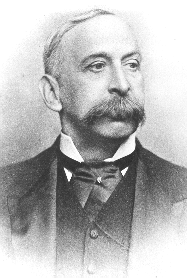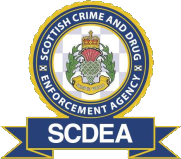The National Hi-Tech Crime Unit (NHTCU) previously formed part of the National Crime Squad, a British Police organisation which dealt with major crime.

The National Crime Squad (NCS) was a British police organisation which dealt with national and transnational organised and major crimes. Formed in April 1998 after the amalgamation of six former Regional Crime Squads it merged with parts of HM Customs & Excise and with the National Criminal Intelligence Service on 1 April 2006 to become the Serious Organised Crime Agency. Subsequent to the Police Reform Act 2002 the NCS Service Authority reported directly to the Home Office and had nationwide and international jurisdiction. It did not handle security matters, referring such matters to the appropriate security service.

In ordinary language, a crime is an unlawful act punishable by a state or other authority. The term "crime" does not, in modern criminal law, have any simple and universally accepted definition, though statutory definitions have been provided for certain purposes. The most popular view is that crime is a category created by law; in other words, something is a crime if declared as such by the relevant and applicable law. One proposed definition is that a crime or offence is an act harmful not only to some individual but also to a community, society or the state. Such acts are forbidden and punishable by law.
Contents
The National Hi-Tech Crime Unit was created in 2001 as a result of an Association of Chief Police Officers (ACPO) initiative. The organisation investigated serious and organised crime committed over the Internet, such as hacking, carding, virus-writers, internet fraud and other hi-tech crimes involving the use of computers and telecommunications equipment.
The Association of Chief Police Officers (ACPO), officially The Association of Chief Police Officers of England, Wales and Northern Ireland, was a not-for-profit private limited company that for many years led the development of policing practices in England, Wales, and Northern Ireland. Established in 1948, ACPO provided a forum for chief police officers to share ideas and coordinate their strategic operational responses, and advised government in matters such as terrorist attacks and civil emergencies. ACPO coordinated national police operations, major investigations, cross-border policing, and joint law enforcement. ACPO designated Senior Investigative Officers for major investigations and appointed officers to head ACPO units specialising in various areas of policing and crime reduction.

Carding is a term describing the trafficking of credit card, bank account and other personal information online as well as related fraud services. Activities also encompass procurement of details, and money laundering techniques. Modern carding sites have been described as full-service commercial entities.
A computer virus is a type of malicious software that, when executed, replicates itself by modifying other computer programs and inserting its own code. When this replication succeeds, the affected areas are then said to be "infected" with a computer virus.
On 1 April 2006, it ceased to exist. However, many of its staff and duties were transferred to the e-crime unit of the UK's new Serious Organised Crime Agency (SOCA). [1]

The Serious Organised Crime Agency (SOCA) was a non-departmental public body of the Government of the United Kingdom which existed from 1 April 2006 until 7 October 2013. SOCA was a national law enforcement agency with Home Office sponsorship, established as a body corporate under Section 1 of the Serious Organised Crime and Police Act 2005. It operated within the United Kingdom and collaborated with many foreign law enforcement and intelligence agencies.







